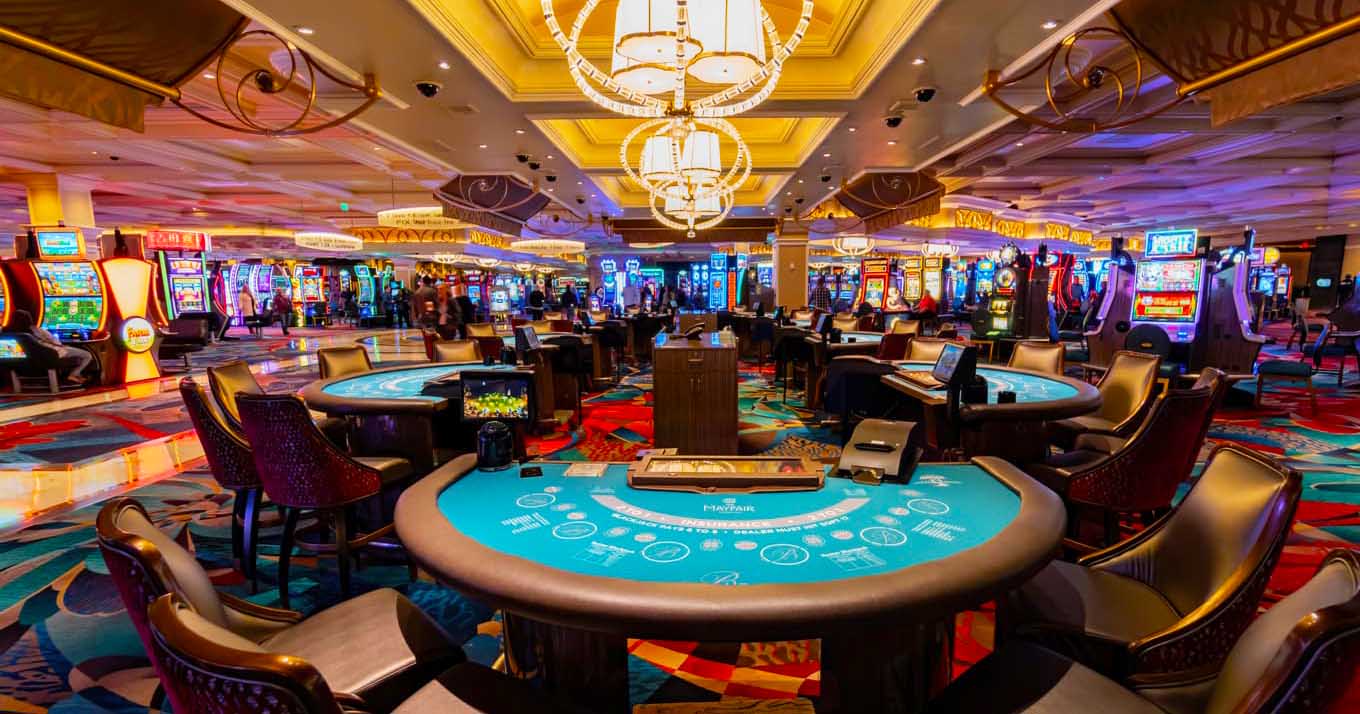
Casino games have long captured the fascination of individuals around the world, becoming an important part of both fun and society. From the sparkling lights of Las Vegas to the immersive experience of internet gambling, these activities evoke enthusiasm, danger, and sometimes even a sense of sentimentality. They are more than just entertainments; they have woven themselves into the fabric of our lives, influencing everything from movies and songs to clothing and literature.
The charm of casino games surpasses the betting aspect, tapping into wider themes of serendipity, chance, and social interaction. As players convene around a card table or rotate the wheel of fortune, they engage in an ancient ritual that resonates with our collective desire for excitement and uncertainty. This captivation has led to the emergence of numerous references in cinema, music, and electronic games, showcasing how deeply entrenched these pastimes are in pop culture. Whether it is the high-stakes tension of a classic heist movie or the lively nightlife portrayed in videos, casino games have created a substantial niche that reflects our connection with risk.
Historical Importance of Casino Games
Gambling games have played a crucial role in social contexts throughout history. Originating from ancient societies, games of chance were often connected to rituals or events. For instance, early iterations of these activities can be linked back to historic China and the Romans, where dice games and betting on outcomes were popular pastimes. These games not only served as leisure but also as means of social interaction, facilitating relationships among people within communities.
As cultures evolved, so did the sophistication and organization of gambling games. The establishment of official casinos in the 17th century, particularly in Italy, marked a significant shift in how games were viewed and organized. With specific spaces for gaming, the casino became a community center where patrons from different backgrounds convened. This evolution contributed to the legitimization of the industry, transforming it from a mere pastime into an organized industry that influenced the economy and policy. đá gà trực tiếp
The impact of gambling activities on mainstream culture cannot be overlooked. As they were popularized in literature and movies, games such as poker and blackjack became symbols of chance, luck, and strategy. Iconic figures and stories have developed around these activities, reflecting societal views towards fortune, wealth, and vice. This interest with gambling games has permeated various forms of media, solidifying their place in the collective consciousness and connecting them to broader cultural stories throughout history.
Portrayal of Gambling Activities in Media
Casino games have long been a popular topic in different types of entertainment, reflecting both the excitement and intricacies of gambling culture. Films such as Ocean’s 11 and Casino Royale portray individuals who navigate high-stakes environments, showcasing not only the allure of the gambling environment but also the methods and judgments that come with playing popular games like Texas Hold’em and 21. These movies often dramatize the thrill of winning and the potential results of losing, encapsulating the perils involved in betting.
TV programs have also explored the world of casino games, often integrating them into the storyline as a backdrop for character development and drama. Shows like Las Vegas depict the experiences of casino workers and customers, highlighting the lively, often disorderly energy of the gaming floor. Docuseries featuring high-stakes gambling competitions further emphasize the attraction of gambling activities, drawing viewers into the tension and strategy involved in each round. Through these depictions, media not only amuses but also sparks conversations about luck, skill, and the character of chance.
Digital games have increasingly included casino games into their development, allowing players to simulate the feeling of gambling without financial risk. Titles within the realm of digital gaming often include online slot machines, poker, and other popular casino games, creating an engaging environment that mirrors actual casino experiences. These digital representations make casino games accessible to a worldwide viewer base, appealing to both gamblers and those who enjoy the excitement of simulation. As a consequence, the representation of gambling activities in media continues to shape societal views and cultural relevance, highlighting their function in entertainment and social context.
Impact of Gambling Activities on Communities
Casino games have a significant effect on society, affecting various aspects of societal norms and social behavior. They often serve as a platform for social interaction, where people come together to enjoy a shared activity. Casino trips with friends or visits to casinos become group events that foster connections and create memories. This collective aspect enhances the fun value of gambling activities, making them a favored choice for celebrations and leisure activities.
Additionally, gambling activities have been depicted in countless movies, television shows, and literature, shaping perceptions and attitudes towards gaming and betting. Icons like James Bond competing in baccarat or the high-stakes poker scenes in films have embedded these games in the collective imagination. This depiction often idealizes the lifestyle associated with casino activities, attracting new players and impacting trends in both style and behavior. These portrayals can spark curiosity and lead to a deeper exploration of the nuances of gaming.
Nonetheless, there are also adverse implications linked to the widespread appeal of casino games. The allure of quick monetary gain can lead to problem gambling and economic troubles for some people. The community must contend with these consequences, advocating for responsible gambling and education of the dangers involved. Balancing the fun aspect of casino games with the risks is vital to ensure that they remain a beneficial aspect of our cultural landscape.